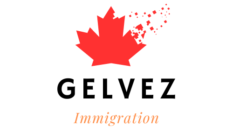8 Reasons to Immigrate to Canada in 2023
Canada consistently ranks among the most popular destinations for newcomers to immigrate to. So it comes as no surprise that there are many great reasons to immigrate to Canada. With a high quality of life, celebrated multiculturalism, and breathtaking wilderness, Canada has earned its ranking among the top countries in the world.
Canada has a long history of immigration that dates back many decades. In fact, the Canadian national identity is built on a foundation of multiculturalism and is intertwined with immigration.
This is not just true historically, but also true looking towards the future. In the coming years, the number of newcomers to Canada is expected to rise each year. By 2025, nearly 500,000 newcomers are expected to be welcomed to the country, the most ever welcomed in a single year.
Considering immigrating to a new country? Here are 8 reasons why Canada should be top of your list.
1. Job Opportunities

Canada has long experienced labour shortages, which have been exacerbated by the Covid-19 Pandemic. Unemployment rates are at record lows. On the other hand, job vacancy rates are at record highs with Canada recently reporting nearly a million unfilled jobs. In fact, research shows that immigration is crucial to filling job vacancies and addressing growing labour shortages.
Labour market outcomes for recent immigrants have been improving substantially in recent years. According to Statistics Canada, the employment rate for recent immigrants has increased by 8 percentage points since the early 2010s, while the earnings among recent economic immigrants rose by 39% percent.
As a country, we depend on immigration to maintain our population growth. The government values immigration for its ability to boost the economy and create jobs for Canadians.
Canada has been ranked as the most educated country in the world! With about 56% of the population having attended some form of post-secondary studies.
Education is a fundamental right in Canada and every Canadian has the right to an education. Canada’s free public school system and mandatory schooling laws ensure that every Canadian has access to basic education. In addition, Canada also provides greater access to post-secondary education than many other countries.
Canada is an excellent choice for international students to come to study. Canadian schools offer a high quality of teaching and are often times more affordable than other popular study destinations, such as the US. Studying in Canada can also help international students apply for Canadian permanent residence.
2. Top-Notch Education

3. Universal Healthcare

Like education, access to medical services is considered a fundamental right for Canadians.
The national health insurance system guarantees that no Canadian citizen or permanent resident will be denied medical care due to costs. Unlike some other countries, in Canada, your annual income doesn’t determine your access to medical treatment.
Each province and territory has its own health plan that covers different products and services. Newcomers can sign up for their province’s health insurance system and get a health card. Most Canadians do not have to pay for most medical and emergency services through the Canadian healthcare system. Through the public healthcare system, Canadians do not have to pay for most medical and emergency services.
Canada has taken a pro-immigration stance for many years to supplement its aging population and address labour demands. As a result, the Canadian government has set up many pathways to help newcomers immigrate to Canada.
One of the most popular immigration pathways is through Express Entry. It is free to enter the Express Entry pool, and doing so not only provides an opportunity to apply for Canadian immigration but also opens eligible candidates up to receive a nomination from a Provincial Nominee Program (PNP). Receiving a PNP nomination greatly increases the chances to receive an Invitation to Apply (ITA) for permanent residence.
4. Pro-Immigration Stance

5. Diverse Multi-cultural Population

In 1988, Canada passed the Canadian Multiculturalism Act into law. One of the first of its kind in the world, it enshrined into law the federal government’s commitment to fostering a diverse society.
Canada prides itself on its multicultural population. Today, Canada is home to people from more than 200 countries, and a vast range of races, religions, and cultures.
A past study conducted by Statistics Canada has found that a majority of immigrants feel a sense of belonging in Canada.
Canada has a much lower crime rate than most other countries in the world. It also and a much lower rate of gun violence than compared to the United States. In 2022, Gun crimes are three times higher in the United States than in Canada.
Canada consistently does well in global surveys on safety, progress, and quality of life. Canada is regularly ranked in the top 10 safest countries in the world as defined by the Global Peace Index.
Canada also ranks #2 in the ranking of the safest country for LGBT tourists conducted in 2020 as per Statista’s report.
6. Safety

7. Stable Political System

Canada has a very stable political system and greatly values democracy. In 2020, it ranked number five on the Economist Intelligence Unit’s world democracy index, ahead of all North American nations.
Our leaders are democratically elected, and there is very little political unrest in the country. When Canadians are dissatisfied with the government, they can freely protest and lobby for change or elect a different party in the next elections.
Canada is known as one of the most economically stable countries in the world. While many countries suffered lasting economic effects caused by the COVID-19 pandemic, Canada has bounced back stronger than ever. By the end of the fourth quarter of 2021, Canada’s economy was bigger than before the pandemic, growing at a pace of 6.7%.
To maintain post-pandemic growth, employers and provinces look to overseas workers to fill labour market gaps. With higher-than-ever immigration targets and a strong economy, prospective newcomers are positioned for success in Canada.
8. Thriving Economy

